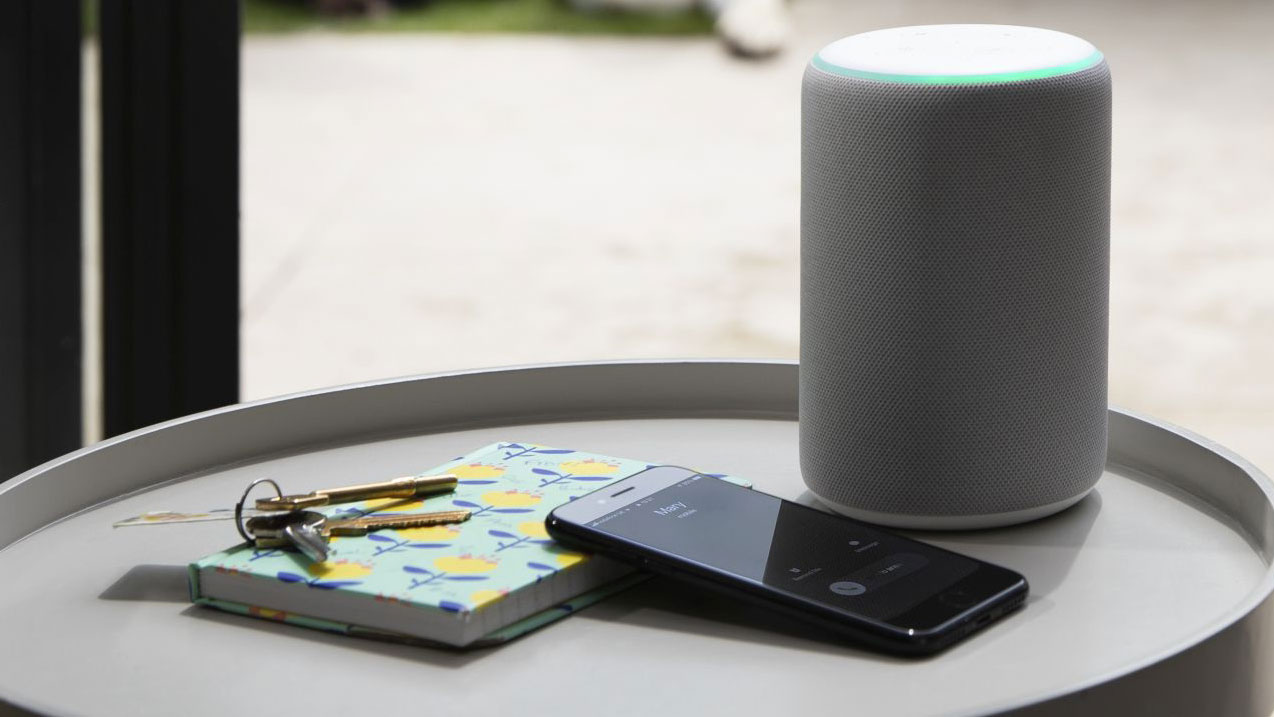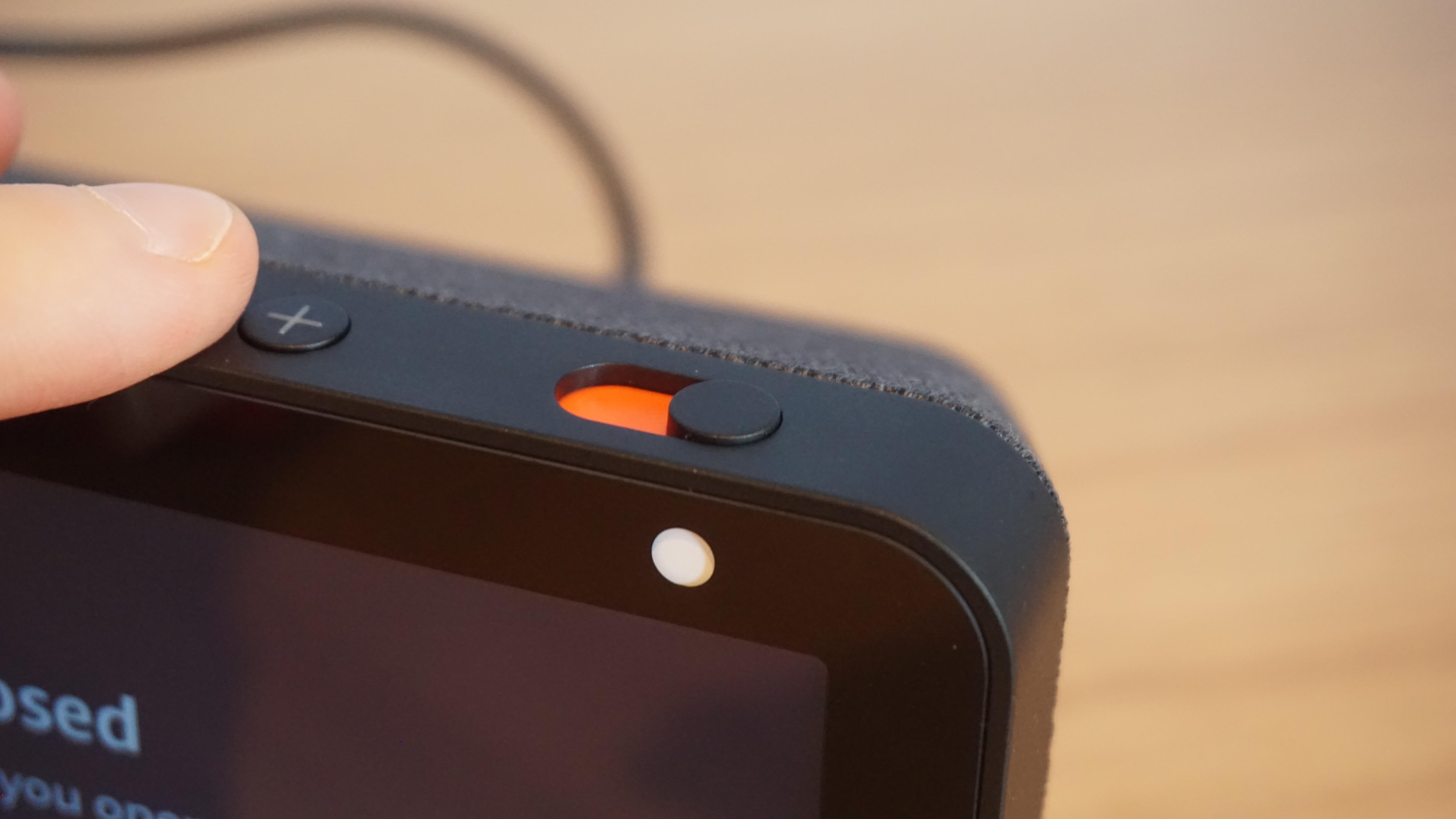How to stop Alexa from listening to you
Take back your privacy with these five tips

Despite being incredibly convenient, Alexa is fast-forwarding us to a world where advertisers know our every weakness and desire. Well, more than they already do. That's because your Amazon Echo smart speaker is always listening, in some fashion. If it wasn’t, how would it be able to recognise the “Alexa” wake word?
Want to make it stop? Here are the ways to take back control and make things as they should be: where no-one in your household really listens to you. Here’s how.
Use the mute button, it really works
You might imagine the “mute” button on Amazon Echo devices would just be there to lull us into a false sense of security. And, in one sense, it is.
However, this is also as technically solid a “mute” button as Amazon could possibly make. Teardowns of the Amazon Echo Dot show that when in mute mode no voltage passes through the mic circuitry.
Most mics may not need batteries, but that does not mean they’ll magically work when effectively shut out of the rest of the Echo. This mute mode is legit.
The mute button either looks like a microphone, or a circle with a line through it, depending on your model.
It’s not a bad idea to set your Echo device to mute when not actively using it. This does, of course, make it pretty useless for any impromptu across-the-room commands. Amazon also makes sure you’ll never mistake it for anything but a non-standard mode, as either the LED ring shines red, or a red line appears on the Show series screens.
Sign up for breaking news, reviews, opinion, top tech deals, and more.

Switch the camera slider
In the same vein, make sure to use the camera slider on Amazon Echo devices with a screen, like the Echo Show or Echo Show 5 smart displays. This blocks the camera with a layer of opaque plastic.
Unlike the mute button, this doesn’t make your Echo visually irritating. You’re meant to be able to use an Echo with the camera blocked 24/7 if you want.
Turn off the Drop-in feature
Drop-in is one of the most contentious features of the Amazon series. This was introduced roughly alongside the Echo Show, and acts like an audio and video (for the Show series) intercom. Someone in front of the Echo in the upstairs bedroom can get through to someone by the Show in the kitchen.
The issue here is that, when enabled, Echo devices can communicate without the mini barrier usually associated with a phone call. It isn’t so much Amazon spying on you as your eight year-old child.
If you don’t like the sound of this, go to the Alexa app on your phone, select Settings, then Device Settings. Select the one you want to tweak and tap Communication. On this page you’ll see controls to turn Drop In off.

Tweak your privacy settings to be less “helpful”
While you're in the settings, there’s another tweak to be made in the app. This one restricts how your voice data is handled when Amazon gets hold of it.
Go to Settings > Alexa Privacy and tap Manage How Your Data Improves Alexa. Flick the Help Develop New Features and Use Messages to Improve Transcriptions sliders to “off” if you want to make your recorded commands slightly less accessible to Amazon.
As standard all your messages are put in the big Alexa machine learning cauldron, used to test new features and improve Amazon’s transcription.
However, thanks to the relatively open way the T&Cs no-one reads are written, it also gives Amazon fairly free rein to do what its wants with your recorded commands, such as let human employees (humans!) listen to your recordings. This opts you out of such activity.
Prune your call history
You can also go back into your history and wipe the data Amazon has on file, which is made up of all the things you ask for from your Echo.
This doesn’t stop the Echo from listening to you, but it does wipe the record of it doing so in the past. To do it, go to Settings > Alexa Privacy > Review Voice History.
You should see a list of your most recent Echo interactions. Tap the Date Range box and select All History, then tap the Delete All Recordings for All History link below.
This zaps every clip Amazon has on file but, as the disclaimer that follows says, this may worsen your Echo’s performance. Every bit of data sucked up populates a user profile, which is used for things you want, and others you don’t.
- Here's how you can protect yourself online
- Or, how to change Alexa's voice, language, or accent

Andrew is a freelance journalist and has been writing and editing for some of the UK's top tech and lifestyle publications including TrustedReviews, Stuff, T3, TechRadar, Lifehacker and others.